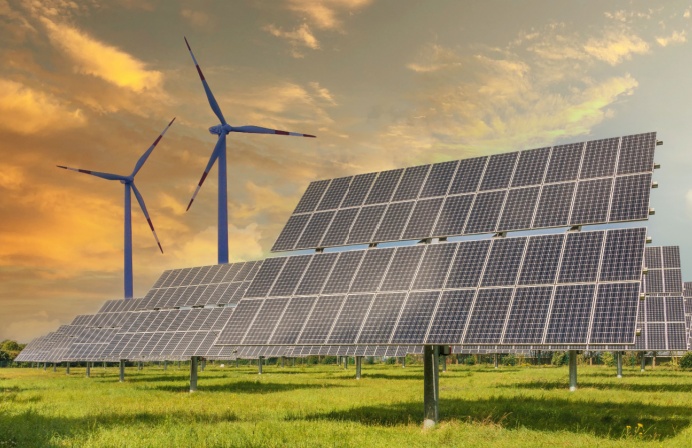
Australian Prime Minister Anthony Albanese has announced a new era of US-Australia strategic cooperation on science and critical and emerging technologies during his visit to the US in October.
The newly unveiled ‘Innovation Alliance’ promises to augment and complement economic cooperation and trade between the two countries, boost foundational security and defence ties, and further cement their newly inaugurated cooperation on climate, critical minerals and clean energy.
In the joint leaders’ statement with President Biden, Prime Minister Albanese welcomed the announcement of Microsoft’s US$3 billion investment in its Australian operations over the next two years.
The promised investment will expand the company’s data centre and artificial intelligence (AI) infrastructure in the country, train more than 300,000 locals, and establish the Microsoft-Australian Signals Directorate Cyber Shield, which commits to “harden” Australia’s defences against cyber-threats to individuals, businesses, and governments.
The two countries’ chief research agencies, the US National Science Foundation (NSF) and Australia’s Commonwealth Scientific and Industrial Research Organisation (CSIRO), are also set to tighten their partnership, announcing a new bilateral cooperation agreement as part of the NSF’s Global Centers initiative.
The pair have committed to invest US$16.3 million in new climate and clean energy research, as well as US$6.2 million in grants to drive ground-breaking research in AI.
Their focus will also extend to space, the researchers announced, with the signing of a space Technology Safeguards Agreement.
The agreement paves the way for the development of new space-related commercial opportunities as well as “providing the legal and technical framework to protect sensitive US space launch technology and data in Australia consistent with our shared non-proliferation goals,” both leaders said in the statement.
“We also welcome progress in negotiations of a bilateral space framework agreement, and encourage further joint commercial investment across all sectors, including space situational awareness and commercial space stations.”
Additionally, the US Government, working with the US Congress, and Australia through the Australian Infrastructure Financing Facility for the Pacific, will provide US$65 million to finance future submarine cable connectivity to Pacific Island countries, assisting, they said, with “access to global markets and realisation of regional connectivity goals”.
“We plan to work collaboratively with commercial cable providers Google and Hawaiki Nui, in partnership with Pacific Island countries, to provide branching units for Federated States of Micronesia, Kiribati, Marshall Islands, Nauru, Papua New Guinea, Solomon Islands, Timor-Leste, Tuvalu, and Vanuatu.”
This work is expected to position all Pacific Island countries to achieve primary connectivity and for countries with existing access to secure options for critical redundancy.
The US and Australia will also engage Pacific Island nations to develop and deploy a pilot initiative in the region to increase national cyber resilience, including upgrades to data services and cloud-based back-ups.
The leaders also stressed their deepened cooperation on advanced capabilities under the AUKUS agreement.
“We welcome the momentum and significant steps underway to streamline defence trade controls and information sharing between our nations, as part of our shared commitment to maximising the strategic and technological advantage of the Alliance and to maximise the full potential of AUKUS.
“We continue to make progress across our current capability development programs, including holding the first demonstration of AUKUS artificial intelligence and autonomous capabilities.
Additionally, they said, there was “momentum and significant steps underway” to streamline defence trade controls and information sharing between the two nations, as part of their shared commitment to maximising the strategic and technological advantage of the Alliance and maximising the full potential of AUKUS.
They also reiterated their commitment to strengthen security standards to safeguard sensitive technology and information.
“We also affirm the importance of strengthening our cybersecurity in response to increasing global threats. The United States and Australia have a shared interest in promoting a safer and more secure cyberspace bilaterally and in multilateral forums, including with the Partners in the Blue Pacific, the Quad, and the International Counter Ransomware Initiative.”
Further to that, the leaders of the two countries reaffirmed that international law applied in cyberspace and that a cyberattack on either nation could constitute an armed attack under Article IV of the ANZUS Treaty.
This follows AUSMIN bilateral consultations of 2011, where both governments confirmed that in the event of a cyberattack that “threatens the territorial integrity, political independence, or security of either of our nations, under the ANZUS Treaty, the United States and Australia would consult together and determine appropriate options to address the threat”.
“A decision as to when such a cyberattack would lead to the invocation of Article IV would be made on a case-by-case basis through close consultations between the United States and Australia,” they reaffirmed.
Additionally, Australia has acknowledged the strategic rationale of the US Executive Order to advance a targeted set of controls on outbound investments in sensitive technologies with a core national security nexus.
“Australia regularly reviews its investment settings to ensure they remain fit for purpose to deal with emerging risks. We intend to maintain close consultations and communicate clearly to the private sector regarding our joint resolve and shared objectives in this area, including our long-standing commitment to investment and open and fair trade.”





